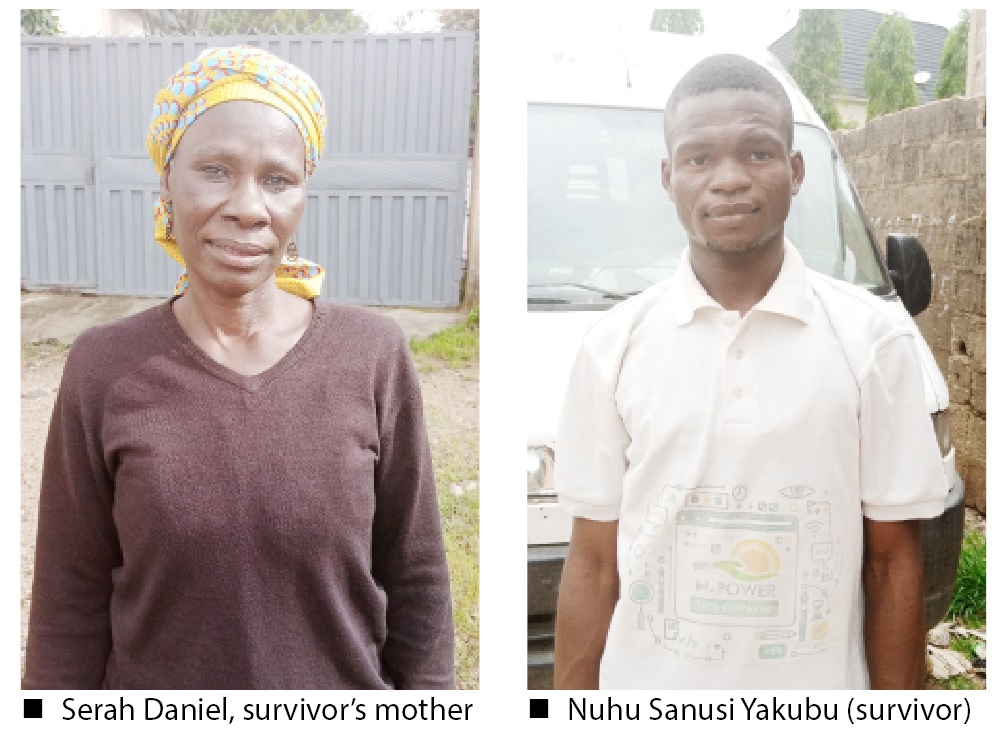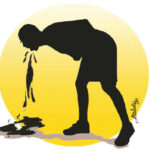The recent cholera outbreak in Plateau State has continued to stir anxiety among the people as most residents have been living in fear and uncertainty as the rains intensify generating the condition for the disease.
Many people in the state suffered from cholera disease, but thankfully most of the victims survived with only a few deaths recorded. Surprisingly too, many of those who suffered from the disease could not afford to go to hospital but attended to themselves at home with the help of family members.
- 3 years after unveiling, Nigeria Air yet to fly
What you need to know about data protection and privacy
According to the Commissioner for Health, Dr Nimkong Lar, at a briefing in Jos the state capital, 1,004 suspected cases were recorded in the state, and 980 patients were treated and discharged with seven others still receiving treatment in various hospitals in the state.
The affected local government areas are Jos North, Jos South, Riyom, Kanam, Bokkos, Wase, Mangu, Bassa, Jos East, Barkin Ladi, Qua’an-Pan, Langtang North and Shendam.
He, however, expressed the commitment of the government to stopping the spread of the disease and advised the people to imbibe the act of handwashing and sanitizing, among other measures to avoid the spread of the disease.
“As a government, we are not relenting in our efforts to address the problem, but we also want to appeal to the public to always maintain good sanitation and shun indiscriminate dumping of waste which causes waste to be washed into various water sources and bodies, especially during this rainy season. This is because this also forms part of the solution when practised by the people,” he said.
Regardless of the assurance by the health commissioner, however, the people continue to live in anxiety, while some survivors of the disease recounted their ordeals to Daily Trust.
Nuhu Sanusi Yakubu who hails from Yelwan Shendam, but resides in Jos, said when the disease hit him a few weeks ago, he never knew it was cholera. He thought it was dysentery and had to take dysentery and stomach ache medicines which did not yield any result.
Yakubu, 23, said he began stooling uncontrollably on Friday until Saturday night at about 11am when it became severe, as he began to vomit as well.
“As soon as the diarrhoea became severe and vomiting also set in, I was rushed to a chemist but the attendant had already closed so I was brought back home, and I had to contend with my condition till the next morning. Throughout that night I was stooling and vomiting.
“The next day I was rushed to a nearby hospital and given 10 drips because I had lost a lot of water. I was later discharged and returned home, but I did not feel any better.
“I was then taken to a bigger hospital called Samantha where I was admitted for three days. I received over 36 drips and my family spent over N33,000 for my treatment. In the process, ulcer emerged again and I was treated for the same.
I got better and was discharged, and only went back a few times for check-up.
On whether he ate something or drank water from which he contracted the disease, Yakubu said he could not remember eating or drinking anything in connection to that, adding that throughout the period he suffered the disease, he could not eat much.
Also, the mother of a 13-year-old survivor Monday Daniel, who recounted their ordeal, said her daughter also contracted the disease through a mango she consumed without washing it properly.
She gave the daughter name as Serah Daniel, adding that throughout the period she suffered the disease, they managed her at home as they could not afford to take her to a hospital because of lack of funds.
“I bought some mangoes and brought them home and in my daughter’s eagerness, she took one and began eating it without washing it. I asked her why she did not wash it before eating and she said I should not worry, and that there was no problem.
“So I went to work the next day and returned home only to find out that my daughter had changed. She looked sick and very weak. I asked her what the problem was and she said she was purging/diarrhoea.
“I went and bought Oral Rehydration Therapy (ORT) and limotine for her, yet the stooling persisted and she began vomiting also. I repeated the treatment again for her in the morning but there was no positive outcome.
“I later began giving her garri to drink as well, and we continued all that for about 10 days. Nonetheless, I did not stop giving her the ORT, and that helped in restoring her strength.
“After battling with cholera for 10 days, someone in our church suggested to my husband that he should buy medicine called zing, and we bought that and began giving her until the stooling and vomiting began to stop gradually. I then bought another medicine called avomine and gave her. That is how she finally recovered.
“I am grateful for her recovery because we could not afford to take her to hospital; we had to try our best at home. One of our neighbours also had cholera shortly before my daughter’s case and the man almost died. He spent about N60,000 on his treatment before he got well. I would not have been able to raise that kind of money?” she said.
Nurudeen Yunusa, 15, who resides on Bauchi Road in Jos is another survivor whose father, Yunusa Musa, said his own case was so serious that they almost lost him.
Forty-three-year-old Yunusa said his son was most of the time stooling and vomiting on him while they were in the hospital, adding that his case resulted from meat he ate.
He said they went to Jos North Local Government Secretariat clinic for treatment and his son received nearly 10 drips in one day. According to him, he received other injections, and that a total of over N27,000 was spent on his treatment before he got well.
He said initially it began like sneezing and runny nose and he had to buy drugs for him, but later discovered that his son was waking up and going to the toilet in the night while vomiting at the same time.
He called on the government to assist people who have contracted cholera disease and are unable to treat themselves.
He also called on the government to improve the health of the environment by providing clean water and monitoring other edible items in the market against contamination and food poisoning.
Meanwhile, a resident of Dadin Kowa in Jos South, Phoebe Dauda, said the recent cholera outbreak in the state was scary and urged people to endeavour to improve their hygiene.
She urged parents to monitor what their children consumed so that they didn’t eat or drink contaminated things, pointing out that children are often carefree with their food/drink consumption.
Commenting on the situation in the state, an Infectious Diseases Specialist at the Jos University Teaching Hospital (JUTH), Jos, Plateau State, Dr. Nathan Shehu, explained that cholera is one of the epidemic diseases and occur both at endemic and epidemic proportions caused by bacteria transmitted through contaminated food and water.
He said in the country, the suspected cases of the disease are over 14,000 from the beginning of 2021 till now, and with about 345 deaths.
The specialist noted that in JUTH, there have been about 50 cases of cholera infection and most of the patients were admitted with severe symptoms.
“The symptoms include diarrhoea that causes weakness in the whole body or lead to unconsciousness and even death. About 50 patients were admitted to JUTH and were successfully treated and discharged. Most people contract the disease through contaminated food substances or water.
“Cholera infection, if not treated early, comes with complications like kidney failure as a result of constant passing out of stool. But if patients come early and are treated, they recover fast and do not need to come back for follow up,” he said.
He advised the public to always follow the health preventive practices established which include washing of food items and fruits thoroughly with clean water and salt, cooking of food properly before consumption and also constant washing of hands thoroughly before eating.
Dr. Shehu further explained that the public should be mindful of their sources of drinking water and be sure it is clean, and where it is not clean to boil it before drinking.
He urged anyone experiencing the symptoms of cholera to take Oral Rehydration Therapy (ORT) and immediately visit a health care centre.
He stated that the outbreak of cholera is higher during the rainy season due to the contamination of water, which resulted from flooding.

 Join Daily Trust WhatsApp Community For Quick Access To News and Happenings Around You.
Join Daily Trust WhatsApp Community For Quick Access To News and Happenings Around You.


